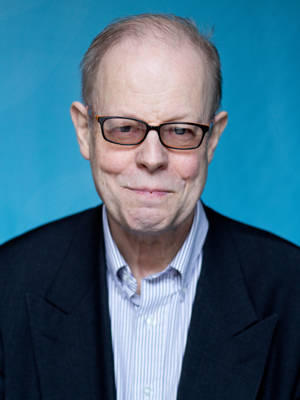With Deng Xiaoping’s take over from late 1970s, China came to focus on economic development and economic competition with a more pragmatic foreign policy. The real change, however, took place after the Cold War with China becoming a self-confident economic power with a new generation of leaders that had not experienced the Chinese Civil War. These leaders did not believe in the political campaigns of the early years. With Jiang Zemin and Hu Jintau, the ambition has been to strengthen China as an economic great power, to consolidate China and to avoid a too ambitious military build-up that would threaten neighbouring states. China has recently expanded its military budget but still kept it at a level below that of the UK, Japan and France, which means less than 10% of the US military budget. This Chinese pragmatic approach has been combined with a focus on UN operations and peaceful dialogue very similar to the Nordic approach, but for different reasons.
As a Cold War borderland to the Soviet Union, the small Nordic states preferred détente and dialogue before a policy of military confrontation. The Nordic countries of today have to large extent inherited this approach from the Cold War era. As small states, the Nordic states underlined the importance of International Law and the UN, and they supported peace initiatives in various Third World conflicts sometimes backed by UN-operations. From the end of the Cold War, the Nordic Social Democratic governments worked for the idea of ‘common security’ and ‘confidence-building measures’ as an instrument to build down military confrontation and possibly transcend the East-West divide by accepting the social responsibility of socialism as well as the freedom of the West, to speak in Social Democratic terms.
The Chinese policy is now governed by the Hu Jintau’s concept of ‘harmony’ instead of Mao Zedong’s concept of ‘class struggle’. Instead of confrontation, the Chinese leadership now speaks about peaceful dialogue and UN-operations. A unilateral Chinese military operation is not considered acceptable (except in case of defence of the Chinese homeland). When the Chinese Chief of Military Intelligence, General Zhang Qinsheng (at a conference of China Association for Military Science, Beijing, 23-24 October 2006), was asked about the precise meaning of the concept of ‘harmony’ to the military forces, his answer was: ‘common security’, ‘confidence-building measures’, ‘UN-operations’ and ‘peaceful dialogue’, in short the policy of Nordic Social Democracy from A to Z. China is now in support of a traditional ‘Nordic security policy’, but not because the country is small but rather because it is very big. The Chinese and Nordic focus on UN-operations, International Law, dialogue and ‘common security’ is very different from the view of the present US Administration, which has focused on preventive military attacks and ‘revolutionary war’. Similar to Mao Zedong in the early Cold War period, US President George W. Bush supports local popular revolts, and he favours, what his advisors call, a ‘revolutionary war’. This US global unilateralism is in conflict with the Nordic, the European as well as with the Chinese view.
Conferences
· Tunander is co-organizing a larger Chinese-Nordic Peace Research Conference taking place in Beijing in 7-9 April 2008 to broaden the dialogue between Nordic and Chinese scholars of international relations. The conference is co-organized by the China Institute of International Studies (CIIS) in Beijing.
· Tunander organized a Chinese-Nordic roundtable conference at Lysebu in Oslo 23-25 March 2007 with diplomats, scholars and President Ma Zhengang of the China Institute of International Studies and with directors and scholars of the Nordic institutes of international affairs and peace research. Among the participants were also Feng Zhongping, Professor & Director for European Studies, China Institute of Contemporary International relations (CICIR); Lu Luhua, Director Department of Policy Planning, Ministry of Foreign Affairs of China; Zhang Tiejun, Acting Director, Department for the European Studies, Shanghai Institute for International Studies (SIIS), and Xing Hua, Director of the Center for EU Studies and Senior Research Fellow, China Institute of International Studies (CIIS). Ma Zhengang is a former Chinese Ambassador to London and former head of the North-America Division in the Chinese Ministry of Foreign Affairs. Among the Nordic participants were Alyson Bailes, Director, Stockholm International Peace Research Institute (SIPRI) and former British Ambassador to Finland; Sverre Lodgaard, Director, Norwegian Institute of International Affairs (NUPI), former Director United Nation’s Institute for Disarmament Research, former Director International Peace Research Institute Oslo (PRIO); Tomas Ries, Director, Swedish Institute of International Affairs (SIIA); Stein Tønnesson, Director, International Peace Research Institute Oslo (PRIO); Kari Möttölä, Professor and Special Advisor for the Department of Policy Planning, Finnish Ministry for Foreign Affairs, former Director for the Finnish Institute of International Affairs; Svend Aage Christensen, Senior Researcher and former Director Department of Analysis, Danish Institute of International Affairs and former Director of Danish Commission on Security and Disarmament.
· Tunander made a presentation on the ‘US Strategy for a New World Order’ at the First International Forum of the China Association for Military Science in Beijing 23-24 October 2006. At this conference, there were a large number of Chinese generals and colonels as well as representatives from US Naval War College, Rand and US Army War College, and senior officers and scholars from various Asian countries (Russia, India, Pakistan, Bangladesh, South Korea, Japan, the Philippines and Singapore) and from European countries like the UK, France and Sweden.






